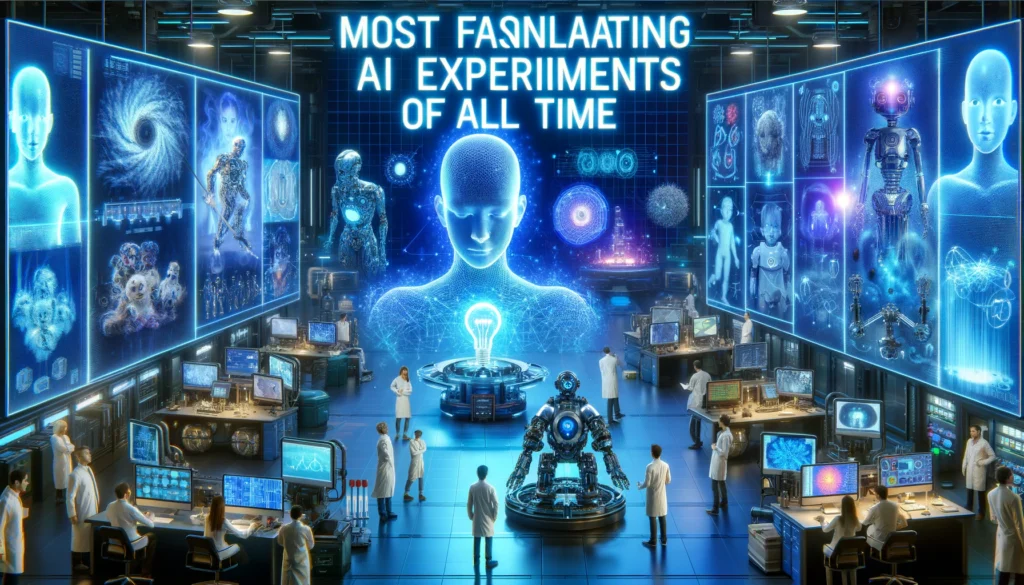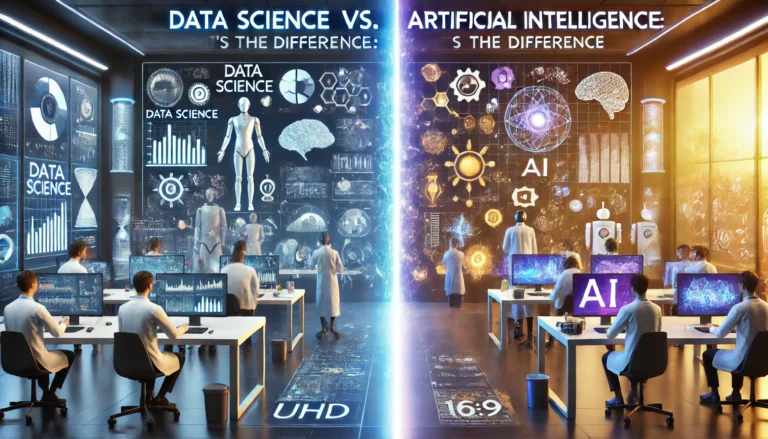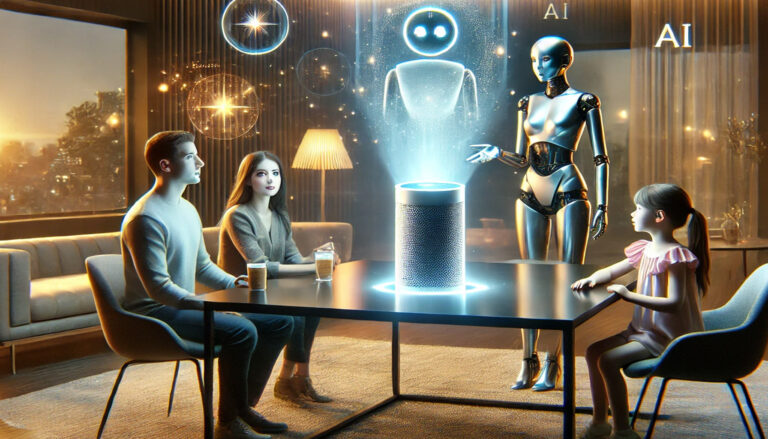
Artificial Intelligence (AI) has transformed from a speculative dream to a driving force in modern technology. Over the years, various groundbreaking experiments have showcased AI’s potential to learn, reason, and even display creativity. In this extensive article, we delve into the most fascinating AI experiments of all time, highlighting their significance and impact on the future.
1. The Turing Test: Pioneering AI Evaluation
The Turing Test, proposed by Alan Turing in 1950, was one of the first benchmarks to evaluate a machine’s ability to exhibit intelligent behavior indistinguishable from that of a human. While no AI has definitively passed the Turing Test, it set the stage for future developments and remains a foundational concept in AI research.
2. IBM Deep Blue: Defeating a Chess Grandmaster
In 1997, IBM’s Deep Blue became the first computer to defeat a reigning world chess champion, Garry Kasparov. This historic match demonstrated AI’s ability to process vast amounts of information and make strategic decisions in real time. Deep Blue’s success paved the way for AI applications in strategic and analytical fields.
3. AlphaGo: Mastering the Game of Go
AlphaGo, developed by DeepMind, marked a significant milestone in AI research. In 2016, it defeated Lee Sedol, one of the world’s top Go players, in a five-game match. The victory was particularly impressive because Go’s complexity and large search space had long been considered a major challenge for AI.
4. GPT Series: Revolutionizing Natural Language Processing
OpenAI’s Generative Pre-trained Transformer (GPT) models, including GPT-3 and GPT-4, revolutionized natural language processing (NLP). These models demonstrated an unprecedented ability to generate coherent, contextually accurate text, enabling applications such as chatbots, content creation, and coding assistance.
5. Sophia the Robot: A Humanoid Wonder
Sophia, developed by Hanson Robotics, is one of the most famous humanoid robots. Capable of engaging in conversations, displaying facial expressions, and even cracking jokes, Sophia showcases how AI can mimic human-like interactions. Her global appearances have sparked discussions on AI ethics and human-robot relationships.
6. DALL-E: Creativity Through AI
DALL-E, another innovation from OpenAI, generates creative and surreal images from textual descriptions. By combining language understanding with image generation, DALL-E has redefined how we perceive AI’s role in art and design.
7. Neuralink: Bridging AI and Neuroscience
Elon Musk’s Neuralink project aims to integrate AI with the human brain. By developing brain-computer interfaces, Neuralink has the potential to revolutionize medicine, enabling treatments for neurological disorders and enhancing cognitive capabilities.
8. Tesla’s Autopilot: The Road to Autonomous Driving
Tesla’s Autopilot system has brought autonomous driving closer to reality. Utilizing advanced AI algorithms, the system enables vehicles to navigate, park, and respond to traffic conditions with minimal human intervention.
9. AI in Medicine: Revolutionizing Healthcare
AI-powered systems like IBM Watson Health and Google’s DeepMind Health have made significant strides in medical diagnostics, drug discovery, and personalized treatment. These systems leverage vast datasets to provide accurate diagnoses and recommend effective treatment plans.
10. AI in Art and Music: Redefining Creativity
Projects like AIVA (Artificial Intelligence Virtual Artist) and DeepDream have demonstrated AI’s potential to create music and art. These experiments blur the line between human and machine creativity, opening new avenues for artistic expression.
11. OpenAI Five: Conquering Esports
OpenAI Five, a team of AI agents, showcased their prowess in the multiplayer online game Dota 2. By defeating professional esports teams, OpenAI Five demonstrated AI’s ability to collaborate, strategize, and adapt in real-time.
12. The Google Brain Project: Advancing Deep Learning
The Google Brain project has been instrumental in advancing deep learning techniques. Its contributions, including breakthroughs in image recognition and speech synthesis, have significantly impacted industries ranging from tech to healthcare.
13. Boston Dynamics: Robots with Agility and Intelligence
Boston Dynamics’ robots, such as Spot and Atlas, have captivated audiences worldwide. These robots exhibit remarkable agility and adaptability, showcasing the potential of AI in robotics and automation.
14. AI Ethics and Morality: The Moral Machine
MIT’s Moral Machine experiment explored public opinion on ethical dilemmas faced by autonomous vehicles. By gathering data on human preferences, the project highlighted the importance of addressing ethical considerations in AI development.
15. AlphaFold: Decoding the Protein Folding Mystery
DeepMind’s AlphaFold solved one of biology’s greatest challenges—predicting protein structures. This breakthrough has far-reaching implications for drug discovery and understanding diseases at a molecular level.
Conclusion
The experiments mentioned above represent just a fraction of AI’s vast potential. Each milestone brings us closer to understanding and harnessing the capabilities of artificial intelligence. As we continue to explore new frontiers, the ethical and societal implications of AI will remain at the forefront of discussions. These fascinating experiments not only showcase AI’s capabilities but also inspire us to dream of a future where technology and humanity coexist harmoniously.




